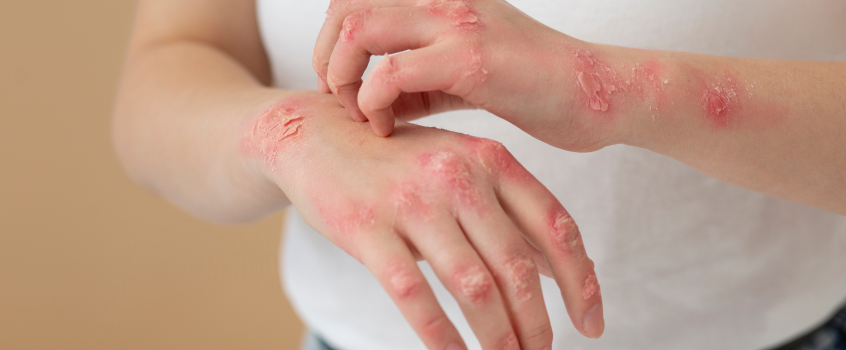What is it?
Herpes Simplex: A viral infection caused by the herpes simplex virus (HSV), which includes two types: HSV-1 (primarily causing oral herpes) and HSV-2 (primarily causing genital herpes). This virus remains in the body for life.
Herpes Zoster: Known as shingles, this viral infection is caused by the reactivation of the varicella-zoster virus (VZV), which also causes chickenpox. Once infected, the virus lies dormant in the nerve cells until it reactivates.
What are its Causes?
Herpes Simplex: The infection spreads through direct skin-to-skin contact, such as kissing or sexual activity. It can also be transmitted when an infected person shows no visible symptoms (asymptomatic shedding).
Herpes Zoster: This condition arises from the reactivation of VZV, which remains dormant after an initial chickenpox infection. Factors like stress, age, or a weakened immune system can trigger this reactivation.
Signs and symptoms
Herpes Simplex: Symptoms include painful blisters or sores on the lips, face, or genital area, along with itching or burning sensations before sores appear. Initial outbreaks may also include flu-like symptoms.
Herpes Zoster: Symptoms typically include a tingling or burning sensation in a specific skin area, followed by pain along a nerve path. A red rash develops into fluid-filled blisters, often localized to one side of the body.
Contagiousness
Herpes Simplex: This infection is highly contagious and can spread through direct contact, including during periods without visible sores. Asymptomatic carriers can transmit the virus unknowingly.
Herpes Zoster: While less contagious than herpes simplex, shingles can spread VZV through direct contact with the rash. Those who haven’t had chickenpox can develop it if exposed to shingles.
Treatment Options
Herpes Simplex: Antiviral medications, such as acyclovir, help manage outbreaks, reduce symptoms, and lower transmission risk. Homeopathic treatments focus on individualized care and address the underlying causes.
Herpes Zoster: Antiviral medications like valacyclovir can shorten shingles duration and alleviate pain. Homeopathic remedies aim to relieve pain, boost immunity, and promote overall healing.
Duration and Recurrence
Herpes Simplex: The herpes simplex virus remains in the body for life, leading to recurrent outbreaks triggered by factors like stress or illness. These outbreaks vary in frequency and severity.
Herpes Zoster: Shingles typically lasts 2 to 4 weeks, but complications such as postherpetic neuralgia can cause prolonged pain and discomfort, affecting quality of life for months or years.
Target Population
Herpes Simplex: This infection can affect individuals of all ages, and many people may carry the virus asymptomatically, increasing its spread in the population.
Herpes Zoster: More common in older adults and those with weakened immune systems, herpes zoster typically appears later in life, particularly in individuals who had chickenpox.
Impact on Quality of Life
Herpes Simplex: While often manageable, recurrent outbreaks can lead to emotional distress, social stigma, and impact personal relationships, affecting overall well-being.
Herpes Zoster: The pain associated with shingles, especially postherpetic neuralgia, can significantly disrupt daily activities and overall quality of life, requiring comprehensive management.
Conclusion
Both herpes simplex and herpes zoster are viral infections that require awareness and management. They differ in causes, symptoms, treatment approaches, and impacts on life. Understanding these distinctions helps in developing effective prevention and treatment strategies for each condition.

